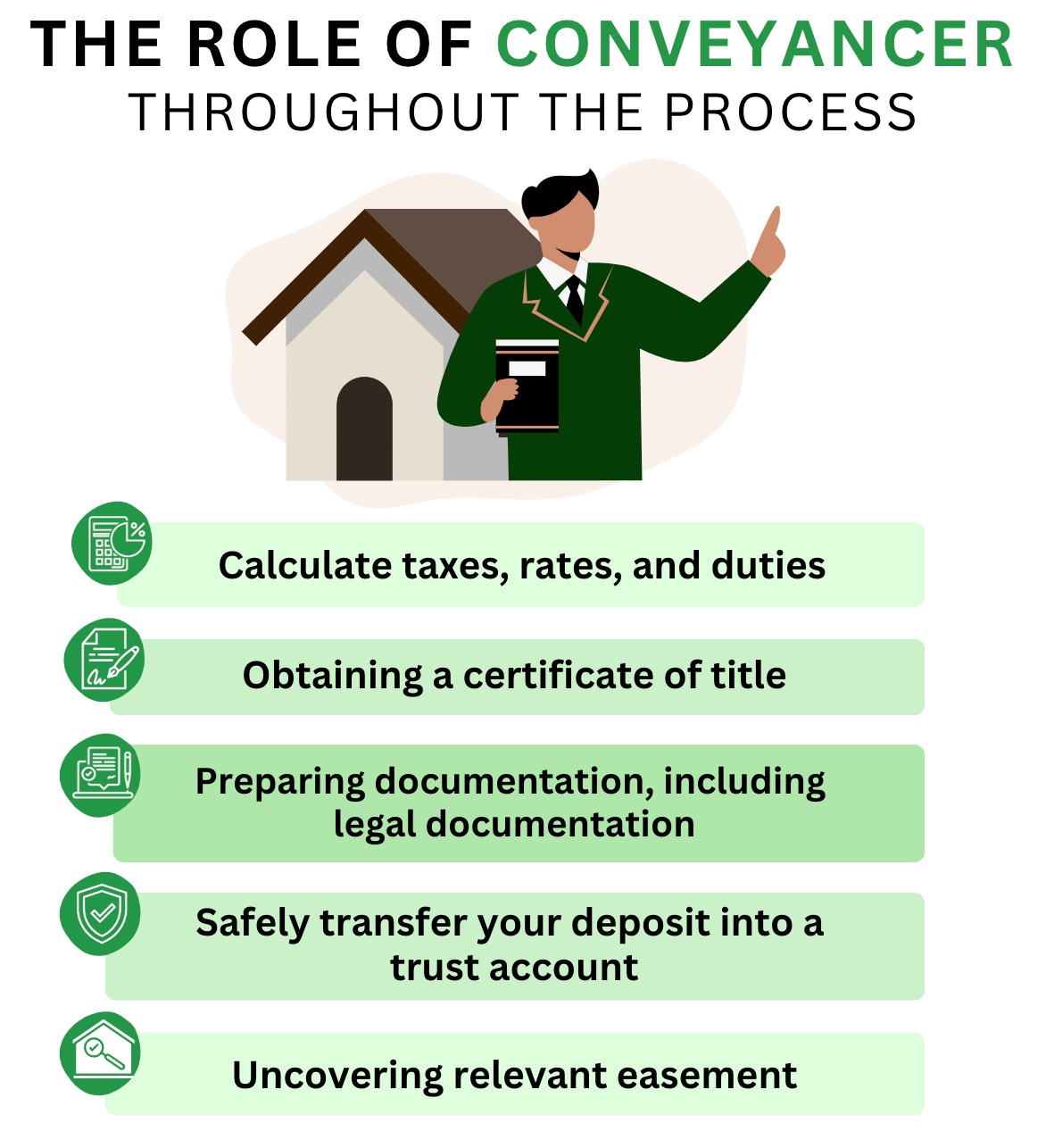The Ultimate Guide To Conveyancer
The Ultimate Guide To Conveyancer
Blog Article
More About Conveyancer
Table of ContentsThe Main Principles Of Conveyancer Rumored Buzz on ConveyancerConveyancer Things To Know Before You BuyIndicators on Conveyancer You Need To KnowThe 5-Second Trick For Conveyancer
This entails sending a transfer deed to the Land Pc registry. It makes certain the customer's name is signed up as the brand-new proprietor. Communicating with the Land Computer registry, a government department, updates the public record with the building's most current owner. The buyer's lawyer takes care of the stamp responsibility land tax obligation after possession transfer.It's payable to HM Income & Traditions. Buyers require to pay this without delay, usually within 14 days of conclusion, to stay clear of penalties. Residential or commercial property purchases come with costs, and conveyancing is no exemption. Conveyancing fees cover two major areas: the conveyancer's fee and disbursements. The conveyancer's fee is for the lawful work of moving home.
Taken care of charge conveyancing charges a set price for conveyancing work. No Sale No Charge conveyancing ('NSNF') charges just if the purchase is effective.
Guarantee no surprise costs are included. Comparing these quotes assists in making an educated choice. Choosing a professional is vital to a smooth property purchase. For a conveyancer search, ask close friends or family members who've gotten property. Their experience can guide you. Estate agents may likewise suggest conveyancers. Nonetheless, ensure that such recommendations aren't only for compensation.
Conveyancer Things To Know Before You Get This
While both conveyancing solicitors and qualified conveyancers are extra than qualified of taking care of the whole acquiring and marketing process, if there are any kind of other legal factors that must be dealt with during the transaction (such as exactly how you leave property in your Will), a conveyancing solicitor may be a better option.

You need to understand that virtually always conveyancers pay referral fees to the representatives for intro of a brand-new client. Considered that the estate representative gets a monetary benefit if you select their conveyancer, you must think about every one of your alternatives and visit numerous conveyancer and contrast their fees and reviews
Ask concerning their regional property experience, charges, and the anticipated conveyancing timeline. Validate their contact information for easy interaction. You may have listened to the term 'self-conveyancing'. While practically feasible, the procedure carries risks and difficulties. It is possible to do your own conveyancing. Absolutely nothing legitimately prohibits buyers and sellers from functioning as their very own conveyancer.
Facts About Conveyancer Uncovered
Nevertheless, conveyancing includes many legal terms and complex processes. Taking this on without specialist training subjects you to prospective mistakes. One oversight can jeopardise your property civil liberties. Stopping working to find a concern in the title actions can result in a loss of possession. Mistakes in Read More Here the paperwork might trigger disagreements with your home loan company or postpone your action.
A conveyancer assists in the preparation of legal records necessary for the residential property sale. Composing the sale contract is an additional task, describing terms of sale, building price, boundaries, and legal rights of method.

Everything about Conveyancer
This short article will clarify the relevance of the function and the different kinds of expert conveyancers.

Conveyancers should follow lawful treatments when preparing and processing records for the transfer of building from someone to one more. A conveyancer can just act upon behalf of both parties in specific scenarios - for example, if both events belong or they are in business collaboration together. Yet a conveyancer must not substitute both celebrations if they have a problem of rate of interest in regard to the purchase.
The account needs to be accepted by Consumer and Organization Services (CBS) and be kept in a bank, developing culture or cooperative credit union. You have to: keep all documents of trust moneyissue in-depth receiptsarrange for accounts and documents to be audited annually. Conveyancing businesses need to have expert indemnity insurance. You need to reveal evidence of the insurance when you renew your enrollment yearly - as an example, a duplicate explanation of the insurance certificate.
6 Simple Techniques For Conveyancer
Conveyancing is the lawful procedure through which the authorized possession of a stationary residential or commercial property is obtained. Essentially, a new deed of transfer is attracted up by a conveyancer and lodged at the deeds office. In this article, we will check out whatever you need to understand about conveyancing. A conveyancer is a lawyer who has been experts (and certified) in the great site preparation of deeds records which by regulation are registrable in the Deeds Registry.

A conveyancer is basically the transfer lawyer of a residential or commercial property, a bond lawyer attending to a brand-new bond registration, or a termination lawyer attending to the cancellation of existing bond(s). The conveyancer gets all the lawful documents in order to have the ability to submit with the Deeds Office. When you get a residential property, the vendor will certainly select a conveyancer who will certainly submit with the Deeds Workplace to get the residential property transferred to your name.
Report this page